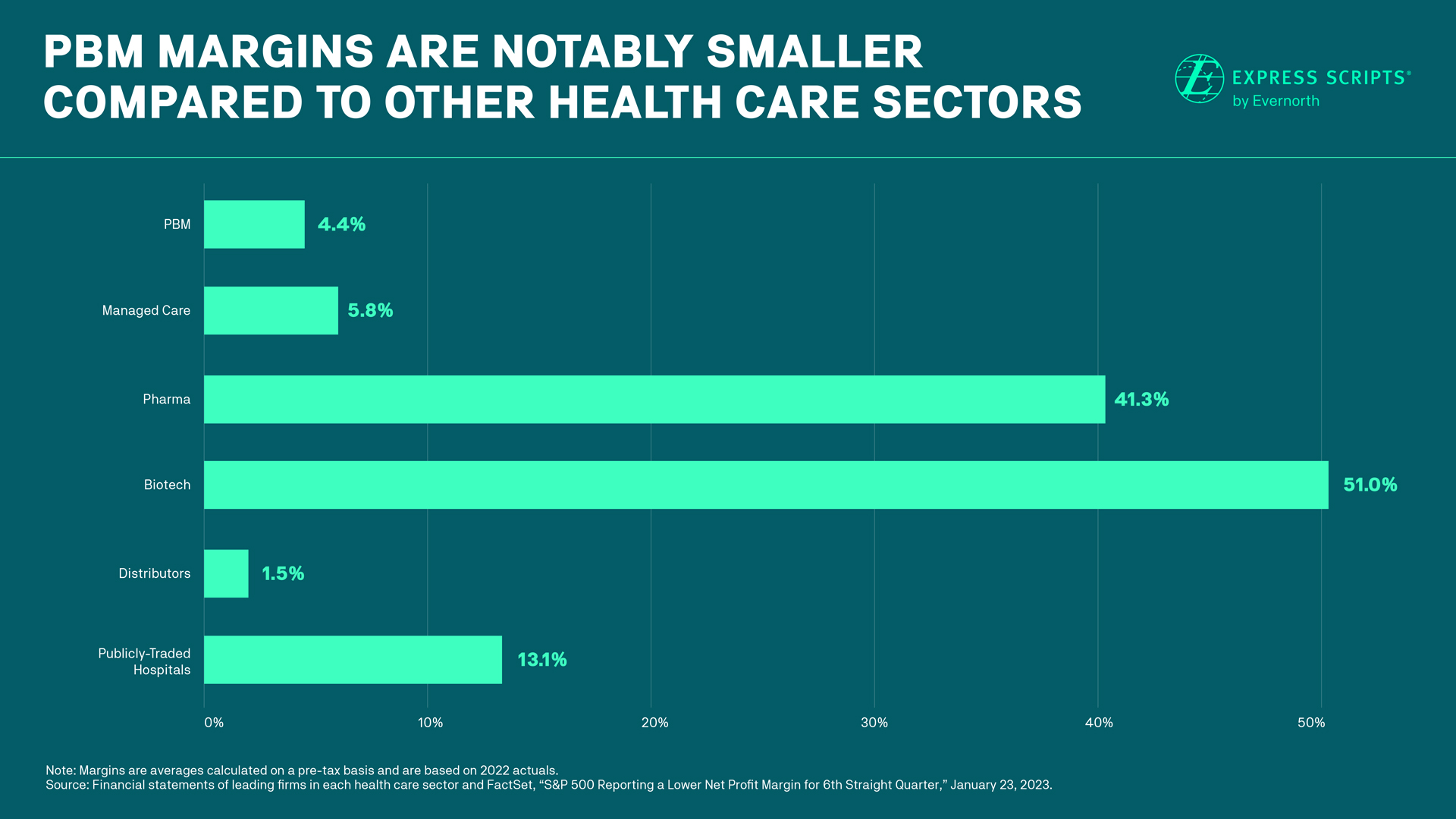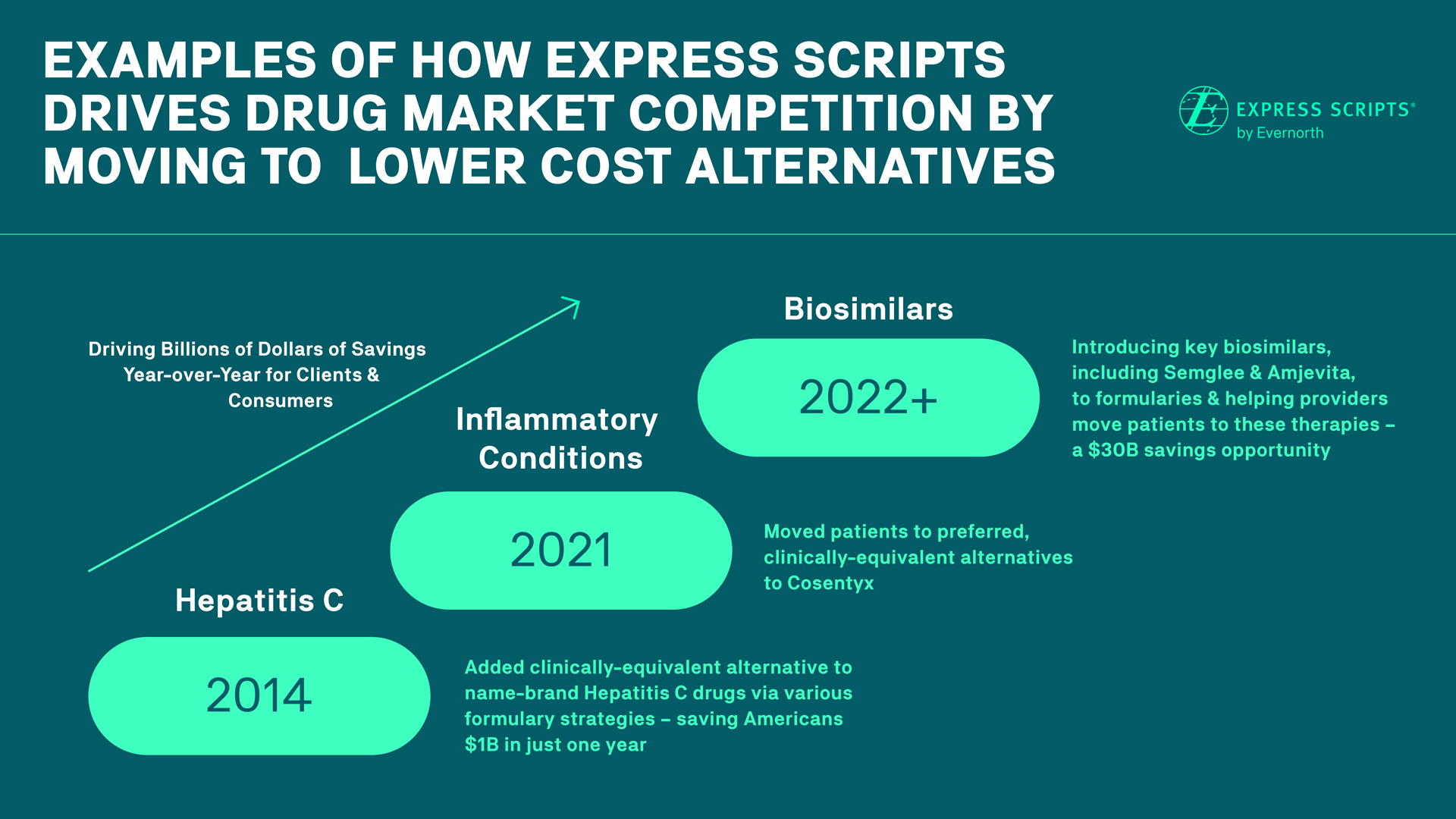The Truth About High Drug Prices
PBMs are not the cause of increasing drug costs
Nearly every American has been affected by high prescription drug prices. This starts with pharmaceutical companies, which have steadily raised prices. Some patients must weigh the costs of needed medications against the costs of other essentials. And employers, government agencies and other organizations that provide health benefits face higher costs for prescription drug benefit plans.
Over the years, drug manufacturers have increased list prices. The PBM industry is innovating solutions to lower the cost of their drugs through rebates and other programs – providing clients with options to finance pharmacy benefits and ensuring consumers can access affordable medications and often life-sustaining or life-saving therapies.
Fact: Express Scripts assumes the risk of negotiating rebates with drug manufacturers to deliver consistent prices year-over-year to clients.
Read more about rebates
Studies and analyses clearly show drug price increases are not caused by PBMs like Express Scripts.
One analysis found that for 500 drugs launched between 2008 and 2021, launch prices increased from an average of $2,115 per year in 2008 to $180,000 per year in 2021. Oncology drugs and drugs treating rare diseases, many of which are non-rebated, had the highest launch prices at $155,000 per year and $168,000 per year respectively.
PBMs drive lower prescription costs and help coordinate care programs – providing benefits at a cost that is significantly lower than the value they bring to the health care system
The average pre-tax adjusted operating margin of PBMs is 4.4% – well below pharmaceutical manufacturers, below many other health care subsectors, and below the 5-year average net profit margin for the S&P 500 of 11.4%.1
Drug manufacturers are focused on monopolizing the system, reducing competition and keeping their prices high
Drug manufacturers actively block competition through the U.S. patent system that would bring to market more affordable alternatives, like generics and biosimilars. This leads to higher prices.
They also often make small tweaks to release their drugs – allowing them to extend their monopoly, and in some cases, relaunch the same drug at significantly higher prices to the market.
Example: AbbVie now owns more than 257 Humira-related patents — the most utilized drug in the world. Since launch, the drug manufacturer has increased the price for Humira 470% from when the drug entered the market.2
PBMs create a more competitive drug marketplace
Express Scripts champions greater uptake of low-cost generics and biosimilars to promote competition to name-brand drugs and negotiates discounts with drug manufacturers. Our economic interests are aligned with the thousands of businesses, government organizations, and health plans that choose our services.
PBMs are also leading the way toward a system that pays for outcomes and clinical value – constantly analyzing pharmacy data to hold drug companies accountable for expected health outcomes from medicines and using insights to inform affordability strategies as well as adherence support needs.
1 FactSet, “S&P 500 Reporting a Lower Net Profit Margin for 6th Straight Quarter,” January 23, 2023
2 I-MAK, “Overpatented, Overpriced Special Edition: Humira,” September 2021

